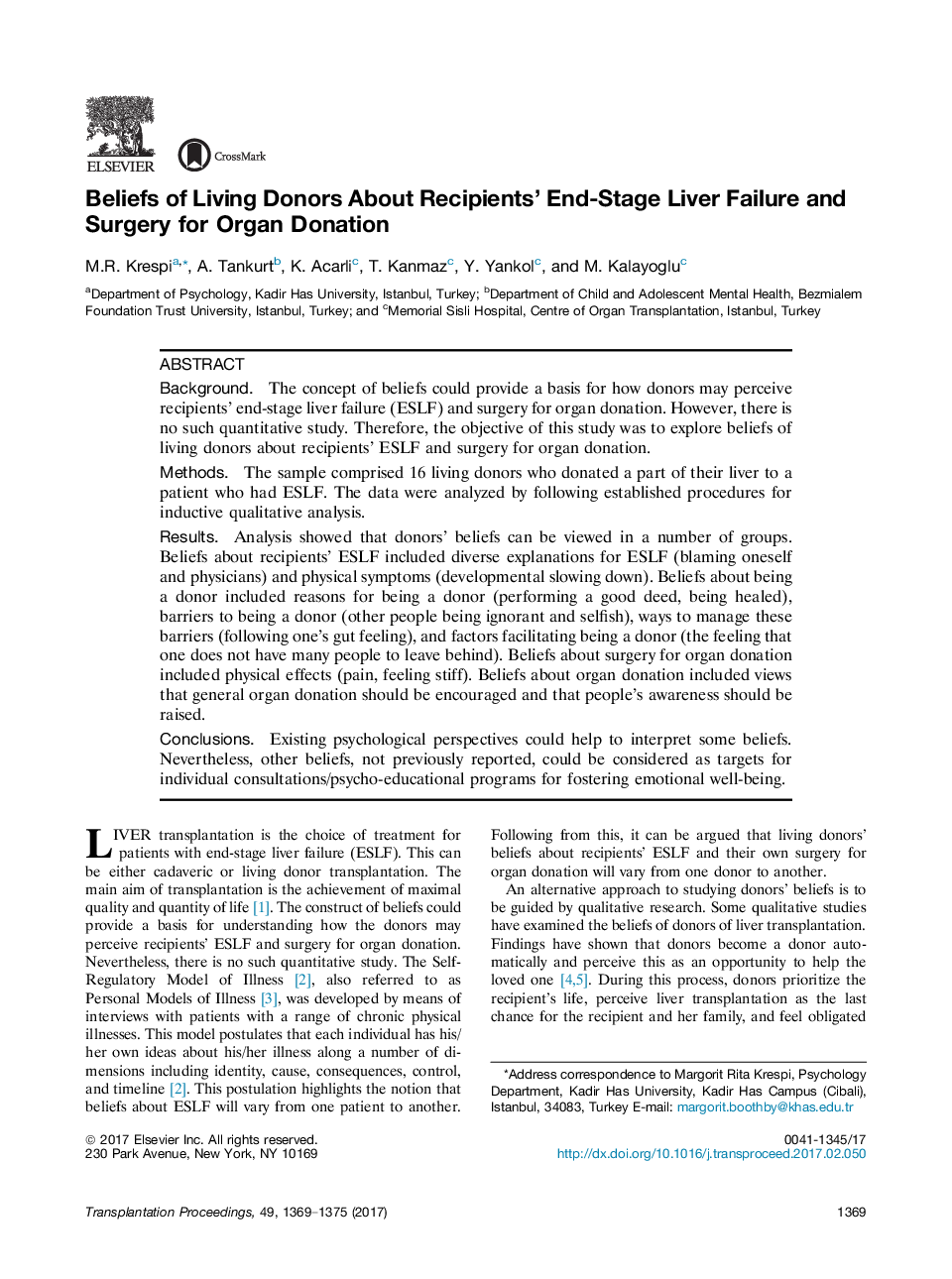| Article ID | Journal | Published Year | Pages | File Type |
|---|---|---|---|---|
| 5728696 | Transplantation Proceedings | 2017 | 7 Pages |
â¢Donors blamed themselves and physicians for recipients' ESRF; stress, worry, and God's will were mentioned as causes for recipients' ESLF.â¢Some held the view that being a donor involved committing a sin.â¢Some held the view that being a donor involved performing a good deed and being healed.â¢Barriers to becoming a donor included other people being senseless, ignorant, and selfish.
BackgroundThe concept of beliefs could provide a basis for how donors may perceive recipients' end-stage liver failure (ESLF) and surgery for organ donation. However, there is no such quantitative study. Therefore, the objective of this study was to explore beliefs of living donors about recipients' ESLF and surgery for organ donation.MethodsThe sample comprised 16 living donors who donated a part of their liver to a patient who had ESLF. The data were analyzed by following established procedures for inductive qualitative analysis.ResultsAnalysis showed that donors' beliefs can be viewed in a number of groups. Beliefs about recipients' ESLF included diverse explanations for ESLF (blaming oneself and physicians) and physical symptoms (developmental slowing down). Beliefs about being a donor included reasons for being a donor (performing a good deed, being healed), barriers to being a donor (other people being ignorant and selfish), ways to manage these barriers (following one's gut feeling), and factors facilitating being a donor (the feeling that one does not have many people to leave behind). Beliefs about surgery for organ donation included physical effects (pain, feeling stiff). Beliefs about organ donation included views that general organ donation should be encouraged and that people's awareness should be raised.ConclusionsExisting psychological perspectives could help to interpret some beliefs. Nevertheless, other beliefs, not previously reported, could be considered as targets for individual consultations/psycho-educational programs for fostering emotional well-being.
